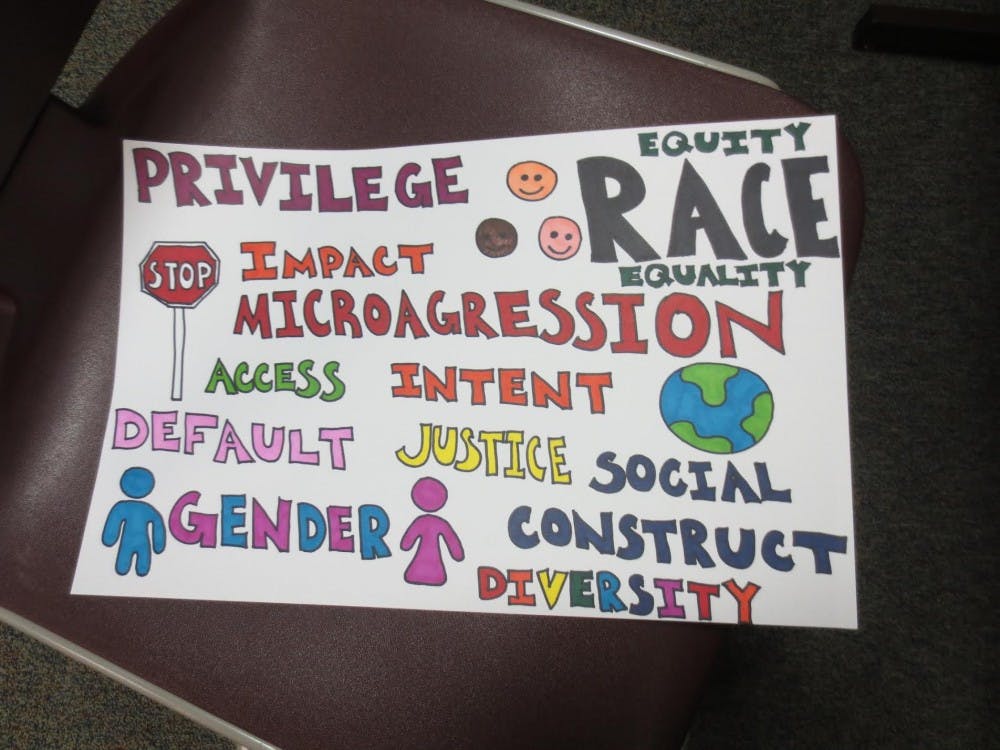The Interim Coordinating Council for Diversity, Equity, Inclusion and Thriving (ICC) brought together university community members Wednesday afternoon to discuss the successes, institutional gaps and challenges in making UR a place where all students, faculty members and staff members can reach their full potential and thrive in an inclusive university community.
Glyn Hughes, the director of Common Ground, led the meeting on Wednesday in the Brown-Alley Room.
“The goals of our council is to bring together members of diversity, communicate and collaborate with the President’s Advisory Committee and deliver recommendation to the President for how to communicate across existing initiatives," Hughes said. "Today’s meeting is not the only way we can communicate."
The plan for the meeting was to identify together which initiatives are working well, what the gaps are and what we are missing, Hughes told the attendees.
A student in the audience said there might be a lot going on on campus, but it lacked communication and coordination.
Hughes and other ICC members led the discussion through four main questions:
- What campus initiatives and efforts do you see going well?
- What obstacles prohibit the university from being successful?
- What do we need to do to more effectively align with the work already happening?
- What is missing in moving UR towards being a diverse, equitable, inclusive, thriving community?
The attendees – who were students, faculty members and staff members – listed various programs and projects on campus that they said made UR a better environment for all. Such programs and projects included the Race and Racism Project, Spider Firsts program, Olive Hill Scholars, Multicultural Pre-Orientation program, Safe Zone for members of the LGBTQ and transgender communities and One Book, One Richmond, attendees said.
Intensity rose as the attendees and members began to express their concerns with the gaps and obstacles they said had been preventing UR from fulfilling its promise to ensure "a place where all students, faculty, and staff can reach their full potential and thrive in an inclusive University community," a goal of this year's strategic plan.
Attendees said one essential problem was the lack of space for students of color.
A faculty member asked whether the university's interest was more about being a white majority institution or whether it wanted to be diversified and not centered on one group of people. Another student expressed hope of seeing more students of color on campus.
Attendees said the university needed to provide a more diverse community where all students could thrive, regardless of background and race. They proposed the idea of having training and workshops for fraternities and sororities around issues of diversity and inclusion.
Enjoy what you're reading?
Signup for our newsletter
“Nothing is changing," Dr. Eric Yellin, Associate Professor of History and American Studies, said. "We are usually shown as a diverse school on reviews, but we are number nine of racially segregated campuses. I don’t want any more surveys without seeing an actual change.”
Amy Howard, the vice president of community initiatives and the Bonner Center for Civic Engagement, finished the meeting by saying the only way for the university to move forward was to have it continue to receive feedback such as this.
“Please share the problems you face," Howard said. "Feedback is necessary to let the university move forward.”
Contact news writer Sana Azem at sana.mouaydazem@richmond.edu.
Support independent student media
You can make a tax-deductible donation by clicking the button below, which takes you to our secure PayPal account. The page is set up to receive contributions in whatever amount you designate. We look forward to using the money we raise to further our mission of providing honest and accurate information to students, faculty, staff, alumni and others in the general public.
Donate Now



